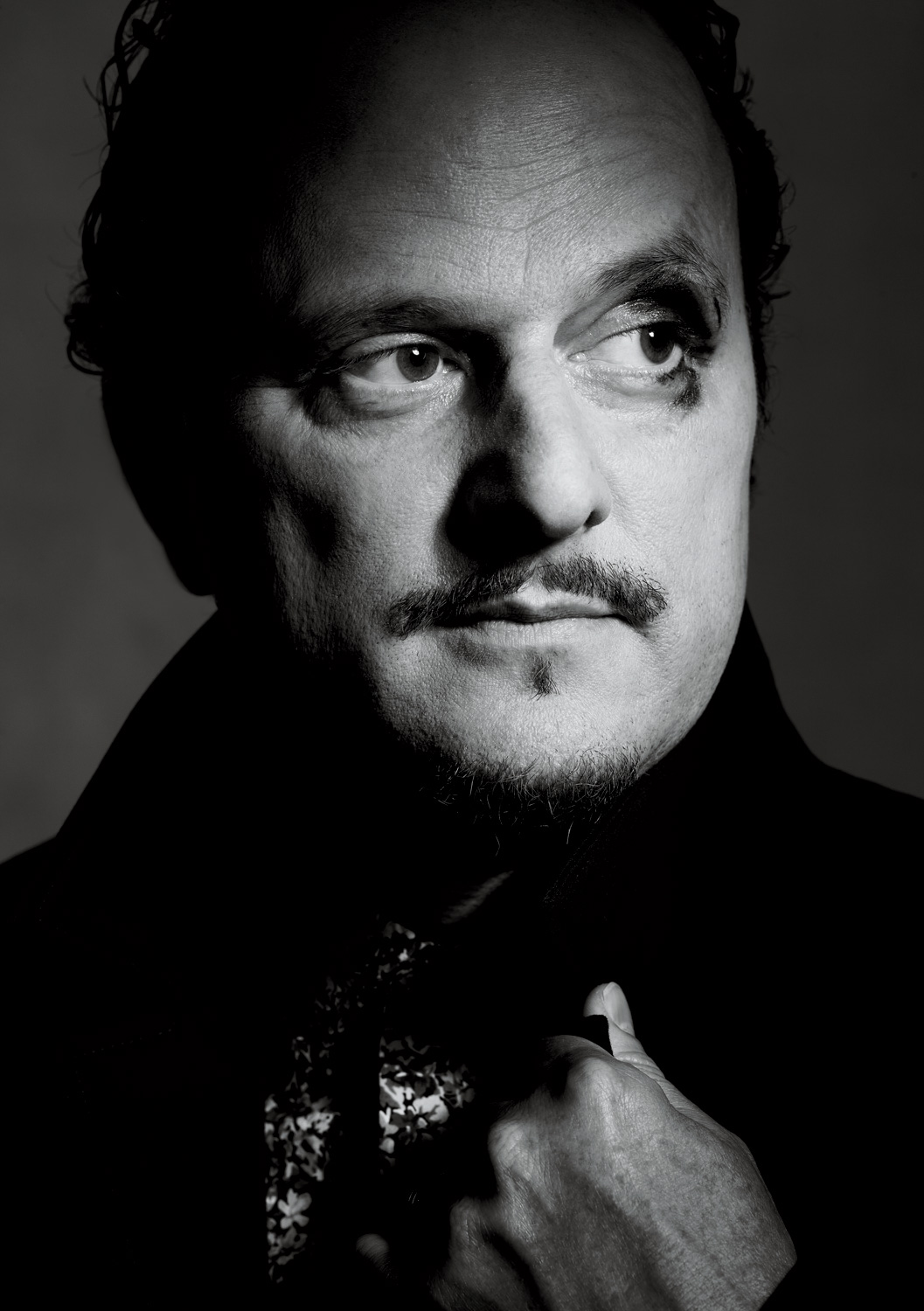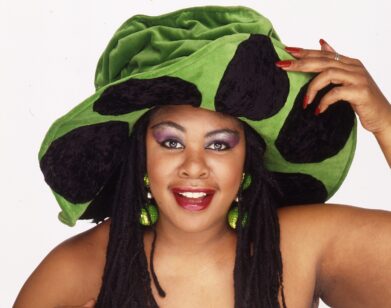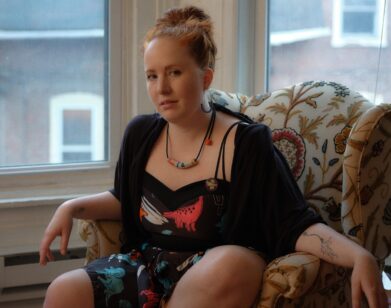Jeffrey Eugenides

Jeffrey Eugenides, age 51, may still be too young to be described as an American master—after all, with the publication this month of his new novel The Marriage Plot, he only has three books to his name. But certainly, within his still-building body of work, Eugenides has taken on some time-honored, big-canvas themes. For example, all three of Eugenides’s novels tackle, in very different ways, the painful transition from youth to adulthood, as well as the nature of love, sex, and disappointment—and, of course, what all of those things mean to being human. In his 1993 debut, The Virgin Suicides, he chronicled the suicides of five sisters from a comely suburban American family not-so-slowly disintegrating from the inside as a neighborhood of boyish admirers watched on. Then came 2002’s Middlesex, which took on everything from gender identity to the Greek-American immigration experience through a hilarious, heartbreaking, and extraordinarily peculiar coming-of-age story narrated by a hermaphrodite—an effort that earned Eugenides a Pulitzer Prize. His latest, The Marriage Plot, extends this mode of exploration through the story of Madeleine, who, upon graduating from Brown University, is pulled between two male classmates of different fates and fortunes, and drawn into a love triangle that spirals into a fog of mental illness, wanderlust, nostalgia, and post-structuralist theory.
Actress and singer Juliette Lewis recently spoke with Eugenides, who was at Princeton University, where he teaches creative writing. In true alpha-literary form—though uncharacteristic for Eugenides—he was sporting a black eye reportedly acquired during a brawl with drunken hooligans on a train back from Manhattan.
JULIETTE LEWIS: The Marriage Plot started out as part of another, different book. What happened?
JEFFREY EUGENIDES: I was writing another novel that was going to be about a fictionalized suburb, not unlike where I grew up in Grosse Point, Michigan. I was following one of the daughters of the family, and I started writing about her and her story began to interest me more and more and got longer and longer, and in a way, it started to violate the scope of the novel that I had envisioned. I realized after a while that this girl was actually not even the daughter in this family. She was more Eastern. She was kind of smarter. She just actually didn’t belong to the family I was writing about. Somehow I messed up, I guess. And yet I was more interested in her story—it seemed less confining to me than the original book that I’d thought about.
LEWIS: How do you know how to trust yourself? Don’t you have thoughts that come in saying, “No, don’t do that”?
EUGENIDES: It’s all full of self-doubt and voices saying, “No, don’t do this. It’s terrible.” At that point, I was living in Chicago, and I rented this studio apartment, and I’m up there every day alone. There’s no furniture in it except a desk. There are snowstorms. The lake is frozen, and I’m up there trying to write this novel and feeling completely out of sorts, because the one novel seemed to be not working, and then this other one seemed to be taking over. Of course, I wasn’t sure. I’d already worked two or three years on the other novel and you don’t want to give up two or three years of work easily, you know? But I was ready to do it. It was painful, but sometimes you must have these painful moments where you tear yourself away from something that isn’t working. The compensation was that I did seem to have another novel that had a lot of energy in it, and I like the music of the voice that was in the novel. Of course, I didn’t know where this book was going, so there was a fair amount of anxiety. Where is this leading? Little by little I got a clearer conception about the book and proceeded. But I’m constantly having doubts and moments of depression and then excitement and then back into the slough of despond.
LEWIS: Did you just say, “slough of despond”?
EUGENIDES: [laughs] Yes, I did. That’s from The Pilgrim’s Progress. The main character’s name is Christian, and when he gets into a bad place, he goes into a “slough of despond.” It’s when you’re despondent.
LEWIS: Your book has three different main characters and is told from their various points of view. Do you try to break from tradition when you write? Do they tell you not to? Or do you do it just if you want to?
EUGENIDES: With Middlesex, I broke most of the rules because I had a first-person narrator, an “I” narrator who was endowed with a measure of omniscience. That perspective moved from first person to third person in a kind of naughty way.
LEWIS: Well, you broke a load of rules and won the Pulitzer Prize.
EUGENIDES: I’m not breaking rules with this one. It’s traditional. If you think of even Tolstoy or a book like Anna Karenina, you go from character to character, and each section is from the third person perspective of a different character, so you get to see the whole world a little more kaleidoscopically that way. That’s traditional narrative manner, and I haven’t done a book like that before, but I enjoyed it.
LEWIS: What would you say the theme of The Marriage Plot is?
EUGENIDES: The Marriage Plot refers to the central plot in the novel itself, especially the English novel. If you think about novels like Jane Austen’s Sense and Sensibility and up through Madame Bovary and Anna Karenina, and Henry James novels like The Portrait of a Lady, they’re all about a young woman who’s not married, who is going to get married either at the end of the book or in the middle, and you’re going to see what happens to her. So that’s a literary concept—the marriage plot. That’s what it is if you’re an English professor and you write about those novels. But those novels are no longer able to be written because the social conditions for women are so radically altered from what they were in the Victorian age. Your freedom is completely different than a woman from that time. So I thought to myself, “How do I write a book utilizing this central and usually very captivating plot of the historical English novel?”
LEWIS: Yes! The confine, the prison.
EUGENIDES: How has the prison changed, or how has freedom not been total? That was the intellectual idea: to write a modern marriage plot, one that would be true for people—and especially women—living today. Now, why am I emotionally drawn to this topic? Well, marriage doesn’t function in the way it used to in terms of deciding our fate, but it’s in our heads, and it determines a lot of our actions. Like, right now, if you think about gay marriage—and they just started having the first gay marriages in New York—it shows what a potent idea marriage remains for people. Even though many people think of marriage, “Well, its time has passed. What’s the use of it?” it operates in our heads as a kind of ideal—looking for the person who is going to be the one. I started doing that at an early age, just from watching romantic movies and reading romantic novels. You get these ideas that there’s going to be one person. Maybe it’s true, maybe it’s not, but it certainly messes with our heads. That’s how it works in my book.
LEWIS: So when you write a book, do you consider the reader or do you just follow your own muse?
EUGENIDES: I don’t think of it consciously. But I care about the reader, and I’m trying to keep the reader’s attention for as long as I can. I’m hopefully making the reader feel a lot about the characters and then about their own life. I want an ending that’s satisfying. I’m more of a classical writer than a modernist one in that I want the ending to be coherent and feel like an ending. I don’t like when it just seems to putter out. I mean, life is chaotic enough. One of the reasons that art is important to me is sometimes it actually feels more coherent than life. It orders the chaos.
LEWIS: You’re from Detroit, right?
EUGENIDES: I was born and raised in Detroit, and then right outside, in Grosse Pointe.
LEWIS: It tickled my heart when I read your Wikipedia entry and it said not only were you from there, but that you have a deep love for the city, because I usually go off on rants about Detroit—in the best way!
EUGENIDES: You mean favorable rants?
LEWIS: Rants like, “Well, how the fuck could anyone leave this city neglected? This is a diamond!” I’ve passed through there many a time on tours. I’ve played in these bombed-out shelters of clubs with the coolest, most gorgeous people, and I’ve filmed a couple of movies there. I stayed in the G.M. building and it reminded me of Escape From New York [1981]—you know, the movie with Snake Plissken.
EUGENIDES: Detroit’s a great music town. If your interaction with it was mainly musical, I’m sure you have a good opinion of the place. I don’t know the clubs very well. I left when I was 18, and I go back a lot, but not usually to the clubs. I know mostly the East Side.
LEWIS: What was your family like and your life like growing up there?
EUGENIDES: My mother grew up extremely poor in the Depression with just her mother taking care of her. My father’s parents had immigrated from Greece, and my grandfather ran a bar and grill. So they were kind of lower-middle-class. My father became a businessman and did better and better throughout my childhood. I was the last of three boys, so by the time I came along, we were upper-middle-class, I’d say. We moved to Grosse Pointe, which is a fancy suburb, so I grew up not impoverished.
LEWIS: When did you know you were a writer? Were you dreaming up stories as a kid?
EUGENIDES: I remember liking to write stories pretty early on. In fourth or fifth grade, they would give us the beginning of a story, and we were supposed to finish it. I remember liking that. But I didn’t think about deciding to become a writer until high school at about the age of 16. I actually did a lot of acting—
LEWIS: Oh, really?
EUGENIDES: Yeah. I wanted to be an actor. My parents were not too keen on that.
LEWIS: [laughs] Why should they be?
EUGENIDES: I switched to writing the next year. I said I wanted to be a writer because they had been so worried about me becoming an actor that they thought writers had it better—like I had said I wanted to be a lawyer or doctor or something. They were fairly supportive of it. Then I went to college at Brown. I was in a theater group at college and most of my friends were in the plays—and there was this one guy there who was clearly a better actor than everyone else, and I thought, “God, I’m only, like, 19 and there’s already someone better than me. I better not be an actor.” So I kept with the writing, but I’d pretty much decided that writing was what I wanted to do.
LEWIS: I don’t know what kind of actor you were, but for me what it means to be an actor is to have a sensitivity toward other people’s perspectives, and to be able to get inside another head or universe and create from that place. Obviously you do that, too, in your novels.
EUGENIDES: I think there’s a real connection between acting and writing novels because the way I write characters has a little bit to do with the method acting that I was taught in high school and college. If I write a character, instead of looking from the outside, like maybe a journalist would, trying to describe them physically and figuring out what kind of things they might be interested in or have in their house, I don’t really do it that way. I try to feel what it would be like to be inside this person, to be them. So there’s a kind of acting that goes on in my head when I’m writing a character where I put myself in their place. When I’m creating a character, it’s a little bit like what my theater teachers used to tell me about Stanislavsky, like if you’re using sense memory to do a scene—if you have to cry in a scene, you try to remember something in your life that made you cry and you use that in order to get the tears.
LEWIS: I reduce it all to energy, even in music and in acting. In my fields, there are intellectual creators and there are visceral, instinctual ones. I would fall in the second camp. How does a story start for you? Does it start with the character? Or does it start with a title or a scene or something you’re feeling from your life that you need to spit out?
EUGENIDES: The ideas for my books come about in two ways. There can be an intellectual idea that seems to be the reason for writing the book. For instance, Middlesex really had to do with a desire to have a narrator know more than any other narrator who had ever narrated—somebody who’s been both male and female knows more about the human experience than someone who’s been only male or female. Tiresias in Greek mythology was able to answer questions about sexuality relating to men or women because he’d lived as both. That was a bewitching idea for me. So that’s the conscious motive. The other motive is unconscious. There is something deeply psychological and emotional that draws me to the material in the first place. It’s hard to explain. It’s the kind of thing you’d sit on a shrink’s couch for years trying to figure out.
LEWIS: When The Marriage Plot comes out, are you going to go on tour?
EUGENIDES: I will go on tours in the United States and in Europe, but it’s not like playing clubs in Detroit.
LEWIS: Do you hate it?
EUGENIDES: No, I actually like it. I don’t publish that often, so I’m not the kind of person who’s tuckered out by it all the time. Many years pass before I do it. Sometimes you have to repeat the same story a lot, and questions are the same, but I don’t mind it. Being a writer is a solitary life. So the little part of me that’s an actor still enjoys the theatrical part of reading and doing the voices and telling the story.
LEWIS: How long have you been married?
EUGENIDES: I think 15 or 16 years? If I don’t remember that, I think I’ll be in trouble.
LEWIS: Well, you’re a guy.
EUGENIDES: What? Just because I’m a guy, I get a pass on that?
LEWIS: You get a guy pass.
EUGENIDES: Thank you.
Photos: Styling: Karen Kaiser/Streeters. Grooming: Talia Shobrook using Vichy Laboratoires/Community NYC. Special Thanks: Shoot Digital and Oliphant Studio.
Juliette Lewis will be starring in the NBC mid-season drama The Firm, and is planning a new EP.






